Mayor Koch wants Quincy to borrow $157 million for 2 downtown parking garages
QUINCY ? Mayor Thomas Koch wants the city to borrow $157 million to build two public parking garages in a section of Quincy Center known as the Ross Lot. The garages would be incorporated into two private, mixed-use developments.
The request was presented to city councilors during the April 1 meeting and referred to the finance committee for further discussion and a vote at a later date.
One of the projects, by Atlantic Development, would include a Trader Joe's and a six-story, 300-unit residential building. The other, by FoxRock Properties, plans to build a tax-exempt medical office building tenanted by Beth Israel Deaconess with retail space attached.
This bond authorization request is the fifth, and by far the largest, in the history of Quincy's downtown 16-year-old revitalization project.
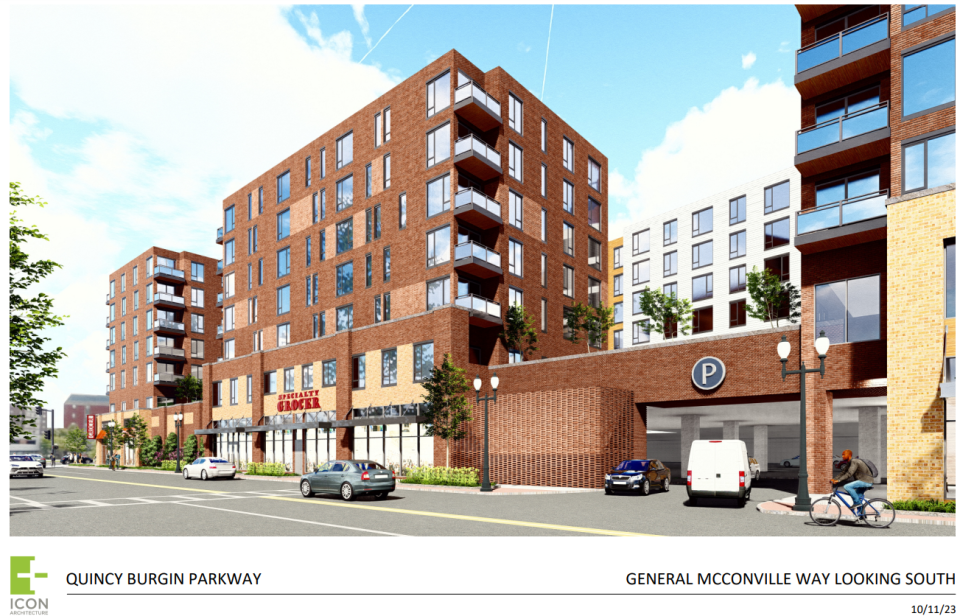
The mayor is requesting city councilors authorize the $157 million borrowing under the District Improvement Financing program. District Improvement Financing allows Quincy to take out loans for public infrastructure improvements in downtown Quincy.
The last time the city borrowed money for a city-owned garage, it was an $80 million loan to improve the Hancock Lot and build the Kilroy Square Garage. The garage itself cost $50 million, according to Koch's chief-of-staff, Chris Walker.
Could Star Market area soon be part of downtown Quincy development?
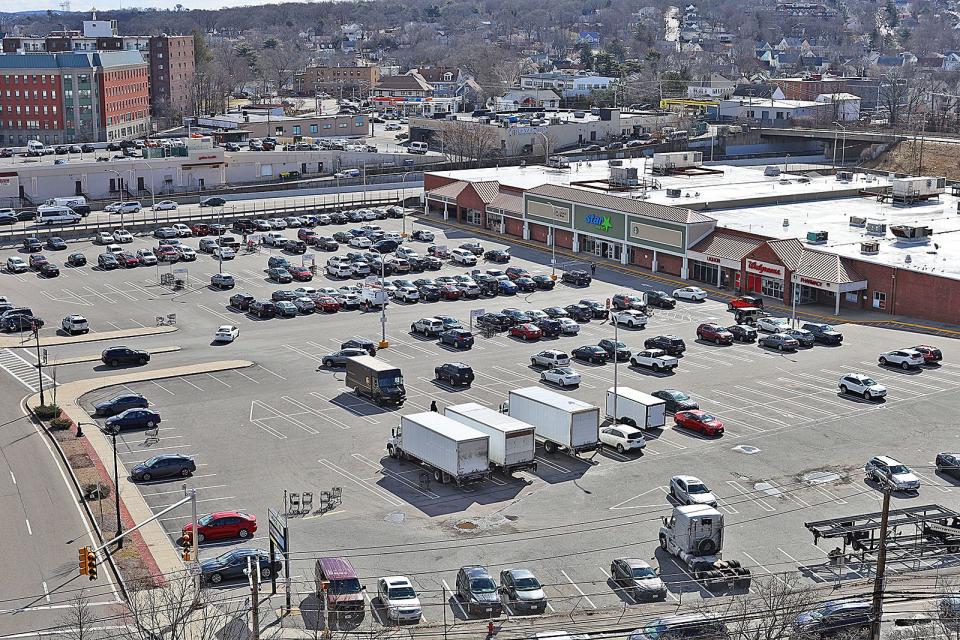
Also on the April 1 city council agenda is a proposed amendment to expand the Quincy Center Urban Renewal District, drafted in 2007 while extending its term by 20 years. It is set to expire in 2027. The expansion would include "areas to the north, east, south and southwest," the agenda reads, with no more specifics outlined. This proposal too was referred to committee.
Koch told The Patriot Ledger on Jan. 30 that the expansion would cross Burgin Parkway to include the Granite Place shopping plaza, which includes T.J. Maxx, Olympia Sports and Boston Market, and the Star Market site with its large surface parking lot, where Koch said there could be "major development," including housing.
Granite Place is owned by the Grossman Companies, the former lumber giant turned real estate firm. Koch said Grossman representatives have approached the city with preliminary plans for housing on the property.
"If they're going to do housing, I want to see some retail at that site," Koch said.
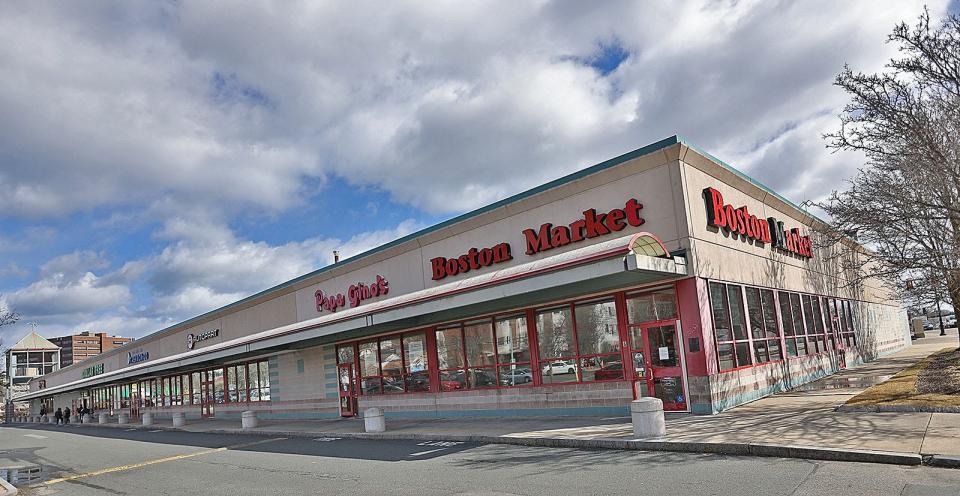
Asked for details about plans to redevelop Granite Place, a Grossman's spokesperson said the company has no comment.
Any amendment to the Quincy Center Urban Renewal Plan requires approval by city council as well as the Massachusetts Executive Office of Housing and Livable Communities.
What is District Improvement Financing?
District Improvement Financing allows Quincy to take out loans for public infrastructure improvements is paid with incremental tax revenue from future development. Incremental tax revenue means revenue from property value growth inside the Quincy Center district that outpaces the average rate of property value growth citywide.
Though the $157 million request on the Monday night city council agenda item makes no specific reference to parking garages, city officials, including Koch, have spoken publicly about the funding's purpose.
Of the $157 million, $131.5 million would go directly to construction costs for the garages. The remainder would cover site preparation, utility work, soil remediation and consulting and legal costs, according to Walker.
On March 19, Koch told The Patriot Ledger that he would seek bond authorizations for the two garages while also trying to secure state and federal funding, mentioning the Massachusetts' I-Cubed infrastructure financing program. A 2022 planning department memo said the city is seeking $40 million through I-Cubed.
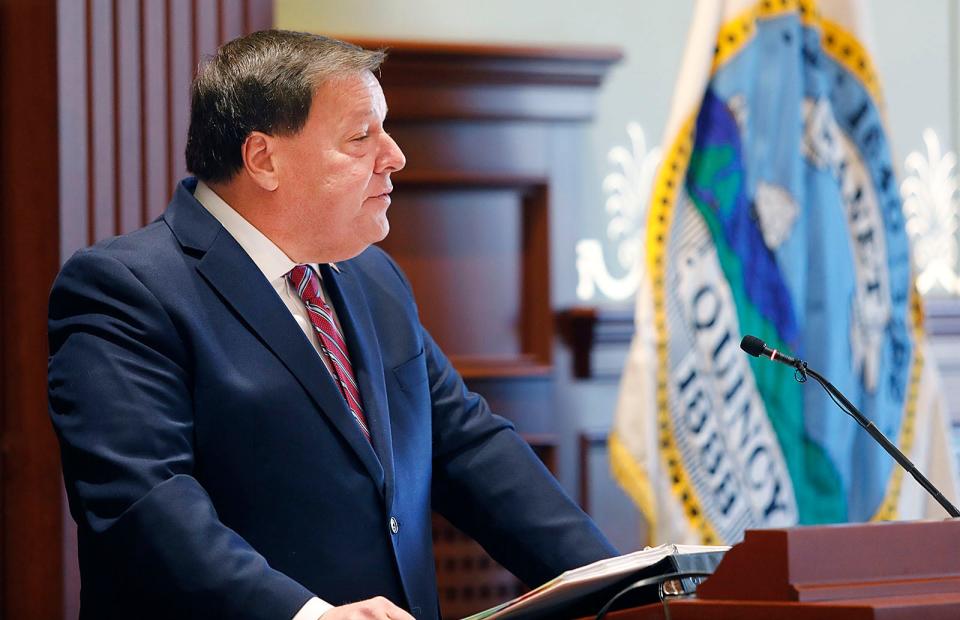
The history of Quincy's borrowing requests through District Improvement Financing
The first bond authorization request, for $40 million, passed in 2007 under Mayor William Phelan and went towards demolition of the old Ross Garage, as well construction of Hannon Parkway.
Ten years elapsed before the second round of District Improvement Financing, an $80 million loan to improve the Hancock Lot and build the Kilroy Square Garage. Two years later, attention shifted from the Hancock to the Ross Lot, and the city borrowed $61 million for infrastructure upgrades, environmental remediation, land acquisitions and other expenses.
The last District Improvement Financing bond authorization came in 2022, when the council approved $53 million for several land acquisitions, including the IHOP on Parkingway and two properties on Hancock Street that the city plans to tear down to create a buffer park between future mixed-use projects by developers Joey Arcari and Sam Slater, who have proposed ground floor restaurants with residential space above.
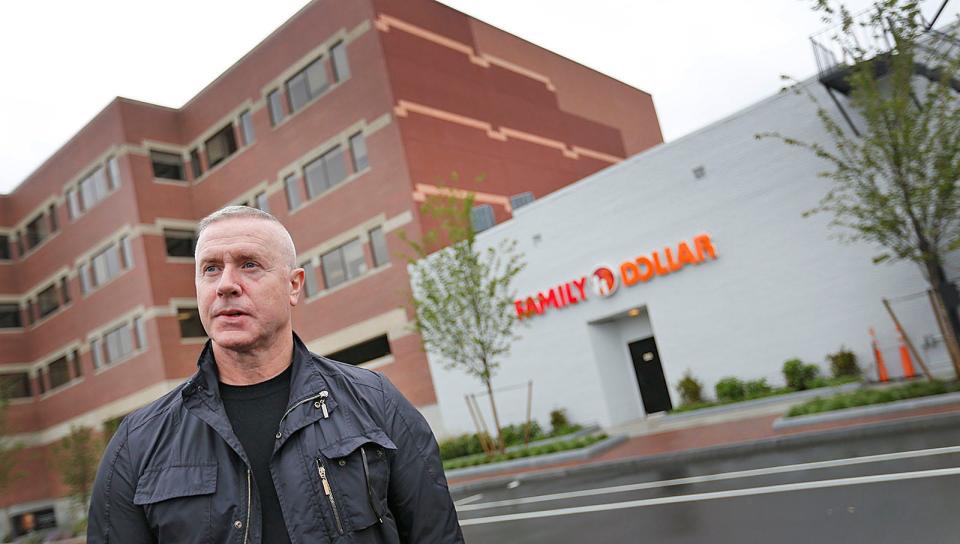
What are Bond Anticipation Notes and what do they mean for Quincy's finances?
Quincy doesn't finance District Improvement Financing spending through traditional bonds, where the borrower immediately starts payments on interest and principal. Instead, it has used bond anticipation notes which require interest-only payments for 10 years. After that, the Bond Anticipation Notes become traditional bonds, and the city makes higher payments on interest and principal.
Bond Anticipation Notes make sense for large-scale public infrastructure investments, where returns in the form of increased tax revenues do not materialize for several years, said Municipal Finance Director Eric Mason.
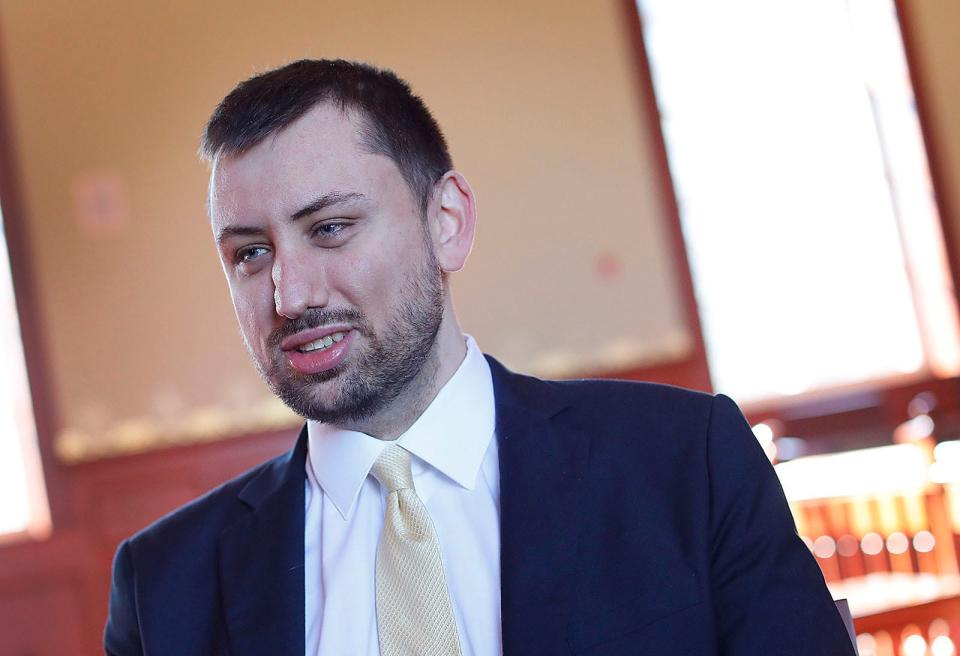
According to city documents, Quincy has $186 million in outstanding Bond Anticipation Notes on its books, almost $180 million of which derives from District Improvement Financing spending.
As the debt burden increases, the city expects that tax revenues will keep pace. City records show anticipated debt obligations on District Improvement Financing spending to peak at about $13 million in 2034 and remain at the level through 2048.
Quincy's Lunar New Year debate: With Koch's endorsement, will Quincy School Committee make Lunar New Year a day off?
FoxRock's medical center: Decision made on 40-year tax exemption for medical building in Quincy
Thanks to our subscribers, who help make this coverage possible. If you are not a subscriber, please consider supporting quality local journalism with a Patriot Ledger subscription. Here is our latest offer.
This article originally appeared on The Patriot Ledger: Quincy may borrow more money for downtown projects, including garages
